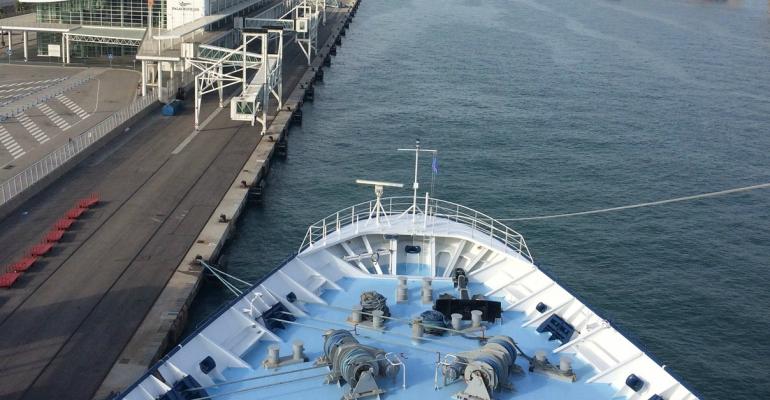The document, approved by the port's management board, involves 25 actions rolled out in 53 operations.
Highlighting the key element of the plan, Port of Barcelona president Sixte Cambra, general manager José Alberto Carbonell and the organisation's environment chief Jordi Vila identified facilitating liquefied natural gas (LNG) fueling for ships, discounts for cleaner ships and replacing the port's internal fleet with electric vehicles.
'Over the last two decades our port has led the way on environmental issues and we are firmly committed to continuing in this leading role. We are aware that our responsibility as a public company is to lead the change towards a more sustainable model' said Cambra.
According to modelling done by Barcelona Regional, port activity is responsible for 7.6% of average annual concentrations of NOx in the city of Barcelona and of 1.5% of particulate matter.
Carbonell specified how this contribution is split between the main segments of the Port's activity. Container ships are responsible for 1.7% of the annual average concentration of NOx in the Catalan capital, with other cargo ships representing 2%, ferries 1.4% and cruise ships 1.2%.
As regards particulate matter, the contribution port activity makes to total concentration in the city (estimated at 1.5%) is split into 0.38% for container ships, 0.48% other cargo ships, 0.23% cruise ships and 0.28% ferries, among others.
Over 1m cruise passengers passed through Barcelona in the first six months of 2016.
Port of Barcelona is already gearing up with LNG supply infrastructure and to develop pilot and demonstration projects to facilitate LNG fuelling for vessels at berth involving installing a flexible cryogenic loading arm at the Enagás terminal to supply LNG to a barge and small boats and adapting a barge to supply LNG to larger vessels.
Both initiatives are under way and receive EU funding, as part of the CORE LNGas hive project run by the European Union.
The policy of environmental discounts on ships' fees is also an innovative aspect of the plan. 'The discount applied to port fees is a very important tool, since it is a fundamental instrument for bringing about change in the vessels,' said Carbonell.
The problem is that at present the law allows a maximum discount of 5% for environmental reasons on ships' fees, which is a very small margin for building an ambitious environmental strategy.
'The Port of Barcelona will ask the Ministry to amend the Ports Law in order to implement environmental discounts of up to 40% of ships' fees, just like the ports of northern Europe (Rotterdam, Hamburg, Antwerp),' added Carbonell.
The complete renewal of the Port's internal fleet of vehicles, which will be progressively replaced by electrical units, is another of the operations under the organisation's Air Quality Improvement Plan. The aim is for the fleet to be 100% electric by 2020.
Copyright © 2024. All rights reserved. Seatrade, a trading name of Informa Markets (UK) Limited. Add Seatrade Cruise News to your Google News feed.


